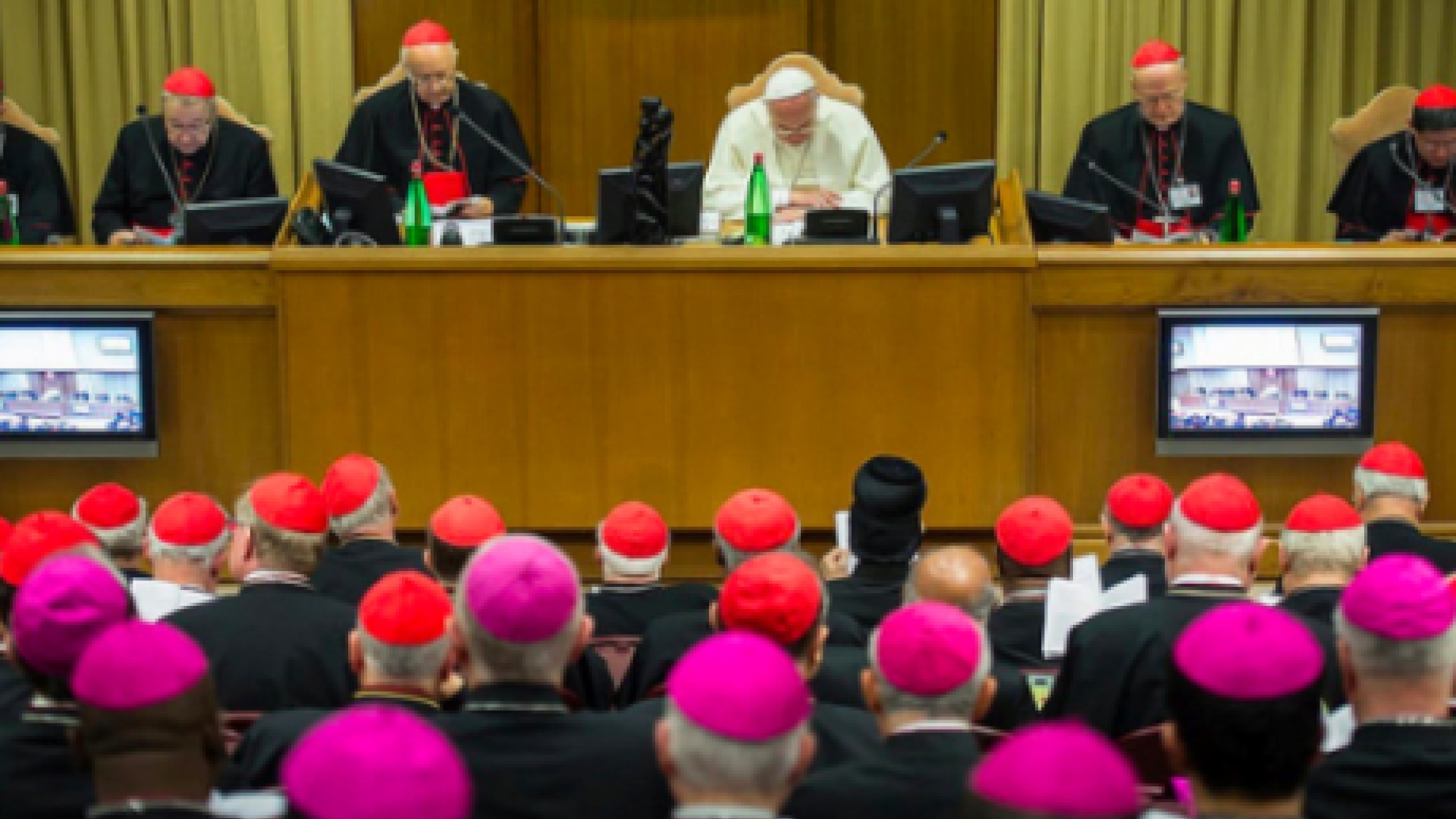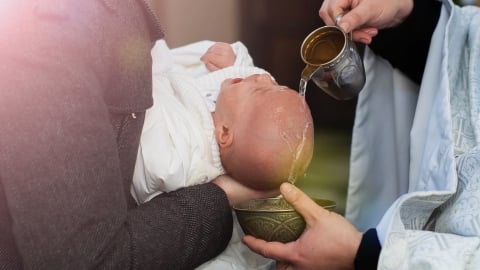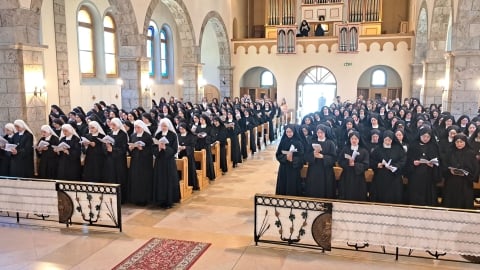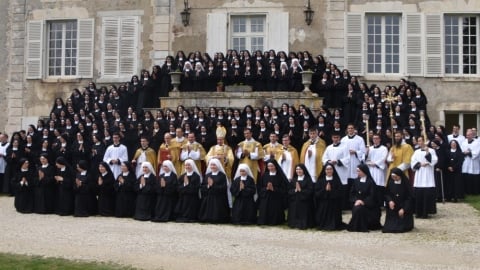"We blame the Council" for Synod's problems

What is the cause of the moral ecumenism that stemmed first from Cardinal Kasper's lips and now from the Synod on the Family's interim report?
We offer this DICI commentary about an interim report from the Synod on the Family that has just been published. In summary, the report demonstrates that the errors of Vatican II are to blame for the problems in the Synod.
Synod on the Family: a doctrinal revolution under a pastoral mask
On Monday October 13, 2014, the Relator General of the Extraordinary Synod on the Family, Cardinal Peter Erdo, Primate of Hungary, published an Interim Report that gives an idea of the tenor of the debates conducted behind closed doors for a week already, and will continue for another.
What strikes the reader at first is finding in this report the scandalous statements made by the progressive Cardinal Walter Kasper in an interview with journalist Andrea Tornielli on September 18th, almost a month ago. As though everything was already foreseen…. Judge for yourself:
Cardinal Kasper, September 18th:
Church doctrine is not a closed system: the Second Vatican Council teaches us that there is a development, leading towards an eventual enrichment. I wonder if a deeper understanding similar to what we saw in ecclesiology is possible in this case (i.e., that of divorced Catholics who have remarried civilly—Ed.): although the Catholic Church is Christ’s true Church, there are elements of ecclesiality beyond the institutional boundaries of the Church. Couldn’t some elements of sacramental marriage also be recognized in civil marriages in certain cases? For example, a lifelong commitment, mutual love and care, Christian life and a public declaration of commitment that do not exist in common-law marriages."
Cardinal Erdo, October 13th:
[A] significant hermeneutic key is found in the teaching of Vatican Council II, which, although it affirms that “the one Church of Christ subsists in the Catholic Church,” also declares that “many elements of sanctification and of truth are found outside of its visible structure … these elements, as gifts belonging to the Church of Christ, are forces impelling toward Catholic unity” (Lumen Gentium, 8). In this light, the value and consistency of natural marriage must first be emphasized. Some wounds whether the sacramental fullness of marriage does not exclude the possibility of recognizing positive elements even in the imperfect forms that may be found outside this nuptial situation, which are nevertheless ordered in relation to it. The doctrine of levels of communion, formulated by Vatican Council II, confirms the idea of a structured way of participating in the Mysterium Ecclesiae by baptized persons. In the same, perspective, which we may describe as inclusive, the Council makes it possible to appreciate the positive elements present in other religions (cf. Nostra Aetate, 2) and cultures, despite their limits and their insufficiencies (cf. Redemptoris Missio, 55)." [Interim Report, paragraphs 17-19]
In an interview granted to DICI on October 3rd, Bishop Bernard Fellay, Superior General of the Society of St. Pius X, had shown the specious reasoning of Cardinal Kasper:
He proposes applying pastorally to marriage the new principles concerning the Church that were spelled out at the Council in the name of ecumenism: there are elements of ecclesiality outside the Church. He moves logically from ecclesial ecumenism to matrimonial ecumenism: thus, in his opinion, there are elements of Christian marriage outside of the sacrament. To see things concretely, just ask spouses what they would think of ‘ecumenical’ marital fidelity, or fidelity in diversity!”
In the March 15, 2014, issue of Il Foglio, Cardinal Carlo Caffarra, Archbishop of Bologna, responded to Cardinal Kasper’s proposals about giving communion to the divorced-and-remarried during the Consistory of February 20th of this year:
Therefore, there is such a thing as extramarital human sexuality that the Church considers legitimate. But that negates the central pillar of the Church’s teaching on sexuality. At that point someone might wonder: why not approve cohabitation? Or homosexual unions?”
Cardinal Erdo’s report opens up supposedly “pastoral” perspectives in two directions:
A new dimension of today’s pastoral theology consists in understanding the positive reality of civil marriage and also cohabitation, taking into account the due differences…. Furthermore in such common-law marriages, it is possible to perceive authentic family values, or at least the wish for them. Pastoral care should always start from these positive aspects…. Homosexuals have gifts and qualities to offer to the Christian community: are we capable of welcoming these people, guaranteeing them a fraternal space in our communities? Often they wish to encounter a Church that offers them a welcoming home. Are our communities capable of providing that, accepting and valuing their sexual orientation, without compromising Catholic doctrine on the family and matrimony?” [Interim Report, paragraphs 36-38-50]
These propositions—which purportedly claim to be merely “pastoral” without any doctrinal implication, just like at the Second Vatican Council—will be subject to debate by the members of the Extraordinary Synod this week and in all dioceses during the year 2014-2015, before the meeting of the Ordinary Synod that is to be held in October 2015.
But already, by the very admission of Cardinals Kasper and Erdo, we can say that, as Vatican II introduced ecumenism with its notion of more or less perfect communion, the Synod is working to propose the ecumenical marriage with a modular notion of indissolubility, that is to say, more or less soluble in the “pastoral”.
On October 3, Bishop Fellay said:
we blame the Council for making this artificial distinction between doctrine and pastoral practice, because pastoral practice must follow from doctrine. Through multiple pastoral concessions, substantial changes have been introduced in the Church, and its doctrine has been affected. This is what happened during and after the Council, and we denounce the same strategy that is being used today against the morality of marriage."
(Source: FSSPX/MG—DICI, 10-14-2014)





